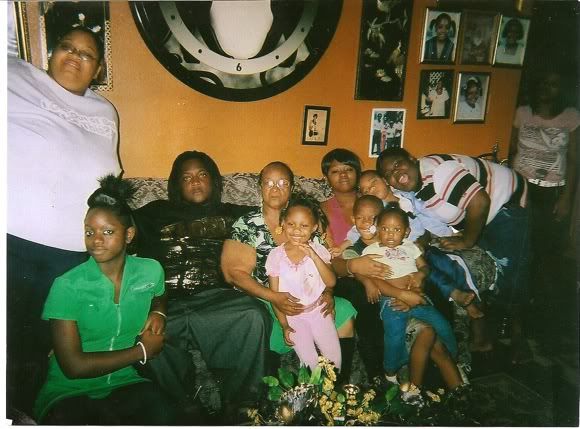
This is a Scott Sisters media report, let's keep sending info into mass media outlets and shine the light worldwide on this travesty of justice!
~~~~~~~~~~~~~~
From: http://www.my601.com/news/local/story/Ailing-Pearl-Inmate-Out-of-Hospital/c_ZJKUQBC0K-HxCnNp33Vg.cspx
Ailing Pearl Inmate Out of Hospital
Reported by: Kathy Times
Email: kathytimes@jxntv.com
Last Update: 3/04 8:19 pm
UPDATE - An inmate at the center of a state capitol protest is out of the hospital and back at the state prison in Pearl.
Last week, supporters of Jamie Scott demanded her release.
They say she needs a kidney transplant, and she is not getting adequate treatment at the state prison.
Suzanne Singletary of the Mississippi Department of Corrections says Scott went to the hospital last week for tests and “everything is normal.”
Scott is back at the prison.
The spokesman says inmates must be terminal or totally disabled before they're considered for medical release.
Scott and her sister Gladys Scott have been in prison for 15 years. Their supporters say they should not have been convicted for a questionable robbery that netted eleven dollars.
To follow the Scott sisters' case, click here. (Freethescottsisters.blogspot.com)
~~~~~~~~~~~~~
And this fantastic piece by James Ridgeway!
From: http://solitarywatch.wordpress.com/about/for-jamie-scott-an-11-robbery-in-mississippi-may-carry-a-death-sentence/
For Jamie Scott, an $11 Robbery in Mississippi May Carry a Death Sentence
On February 25, a small crowd gathered outside the state capitol in Jackson, Mississippi, to push for the release of sisters Jamie and Gladys Scott, who are serving two consecutive life sentences apiece for a 1993 armed robbery in which no one was injured and the take, by most accounts, was about $11. Supporters of the Scott sisters have long tried to draw attention to their case, as an extreme example of the distorted justice and Draconian sentencing policies that have overloaded prisons, crippled state budgets, and torn families apart across the United States. But in recent months, their cause has taken on a new urgency, because for Jamie Scott, an unwarranted life sentence may soon become a death sentence.
Jamie Scott, 38, is suffering from kidney failure. At the Central Mississippi Correctional Facility (CMCF) in Pearl, where Jamie and Gladys are incarcerated, medical services are provided by a private contractor called Wexford, which has been the subject of lawsuits and legislative investigations in several states over inadequate treatment of the inmates in its care. According to Jamie Scott’s family, in the six weeks since her condition became life-threatening, she has endured faulty or missed dialysis sessions, infections, and other complications. She has received no indication that a kidney transplant is being considered as an option, though her sister is a willing donor.
Jamie Scott’s family and legal advisors believe the poor health care she is receiving in prison places her life at risk. They have sent pleas for clemency or compassionate release to Governor Haley Barbour, whose tough-on-crime posturing and dubious record on issuing pardons do not bode well for Jamie. The Mississippi Department of Corrections (MDOC) has a provision for what it calls “conditional medical release,” but Scott is not a candidate, department spokesperson Suzanne Garbo Singletary said in an email last week, because “MDOC policy provides that an inmate must have a condition that is ‘incapacitating, totally disabling and/or terminal in nature’ in order to qualify.” So Jamie Scott appears to be caught in a deadly Catch-22: In order to be released from prison, she must convince the MDOC that her illness is terminal or “totally disabling”; but the only sure way for her to prove this is to die in prison.
Cruel and Unusual Health Care
In telephone interviews earlier this week, the Scott sisters’ mother, Evelyn Rasco, described the treatment Jamie has received at Central Mississippi Correctional Facility (CMCF), based on her own observations and information provided by her two daughters. Jamie, who has diabetes and bouts of high blood pressure, said that medical staff at the prison first diagnosed possible kidney problems in 1997–but until recently, she received minimal treatment outside of her regular insulin. Jamie’s physical and mental health suffered last fall when she spent 23 days in solitary confinement (for being found in an “unauthorized area” in the prison gym) and was cut off from her routine of work, classes, church, and occasional visits with her sister. Then, in mid-January, Jamie became seriously ill when both her kidneys began shutting down. She was sent to the prison infirmary and, after a week’s delay, taken to the hospital. There, doctors inserted a shunt in Jamie’s neck to allow her to receive dialysis through a catheter, and she was promptly returned to prison.
Rather than letting Jamie Scott leave the prison regularly for dialysis, prison authorities chose to truck in dialysis machines. About three times a week, Jamie has received hemodialysis in a trailer on the prison grounds—if the machines are working properly, which she reports isn’t always the case. At one session, Jamie told her mother, the blood was flowing out of her through a catheter into the dialysis machine—but it wasn’t flowing back in, so the treatment had to be stopped. At the end of January, another inmate looked in on Jamie, who was locked up alone in her cell, and found her unconscious. She was rushed to the hospital, where doctors told her there were problems with the shunt inserted into her neck. They made adjustments, and she was again taken back to prison.
Evelyn Rasco lives in Pensacola, Florida, where she cares for her daughters’ five children while they are behind bars. Since Jamie and Gladys went to prison, Rasco’s husband of 30 years died of a heart attack; another daughter died of congestive heart failure; and her oldest son was away for several years serving with the Army in Iraq. In a letter to supporters last year, Jamie Scott wrote: “When I think of the word ‘strongest,’ I think of my mother. She is 4 feet 9 inches tall and has the strength of Job in the Bible.”
Rasco lacks the time and financial resources to visit her daughters often, but in mid-February, she managed to make the trip to Mississippi. When she visited the prison on February 18, along with Jamie’s 18-year-old son, Jamie was feeling sick but was able to make it to the visiting room. When Rasco returned two days later, she found Jamie in a cell attached to the infirmary. “She was real weak,” Rasco said. “She couldn’t walk.” An infection appeared to have developed at the site of Jamie’s catheter, which had filled with blood and pus. Nurses reportedly told Rasco that Jamie should be in the hospital, but the paperwork hadn’t been done.
Rasco said that when she entered her daughter’s cell, Jamie was sitting on the edge of a hospital bed with dirty linens, near a toilet and wash bowl that had not been cleaned. Prison staff arrived with a plate of food—a hamburger swimming in grease, some side dishes, and a cookie–but Jamie said it looked so bad she couldn’t eat it. The doctors at the hospital had given her a list of foods she should eat, including meat, fish, and vegetables, but they were not available, and she did not have permission to purchase food at the prison commissary. (That permission has since been granted.) So Jamie sat on her grimy bed eating a Snickers bar. “She sat right there with me,” Rasco said, “and tried to give me a piece.” Knowing it was the only nourishment her daughter was likely to have, her mother declined.
(Cont'd)
FULL ARTICLE IS ALSO HERE: http://www.scribd.com/doc/28142096/solitwatchjmp
IF YOU WISH TO DONATE, PLEASE SEND MONEY ORDER TO:
MRS. EVELYN RASCO
P.O. BOX 7100
PENSACOLA, FLORIDA 32534












